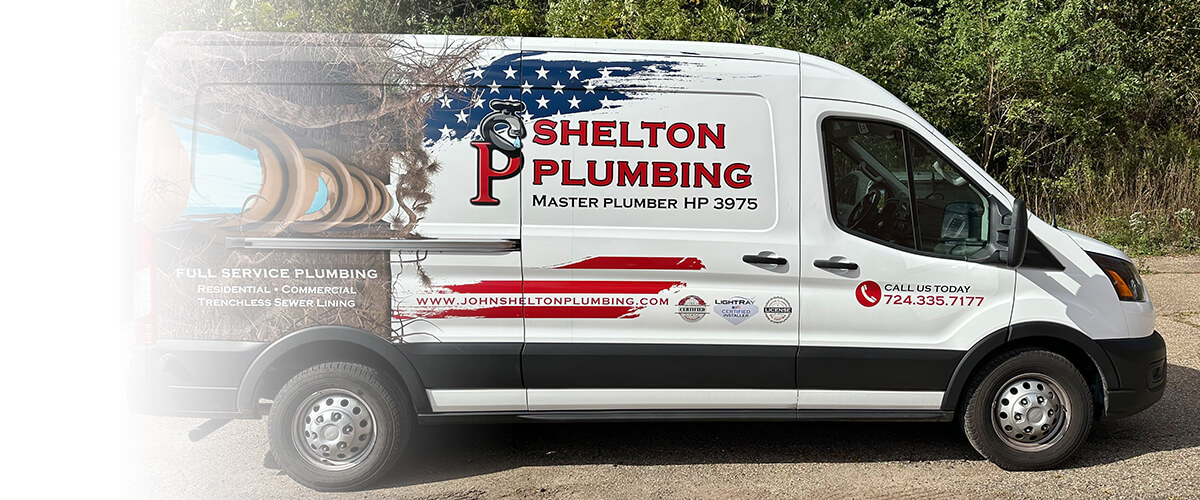Tankless vs. Traditional Water Heaters — What’s Best for Western PA Homes?
When it’s time to replace your water heater, most homeowners face the same question: Should you choose a tankless system or a traditional tank model? Each option has strengths, and the right choice depends on your home’s layout, hot water demands, energy goals, and budget. As a trusted plumbing company serving the Lower Burrell area and surrounding Alle-Kiski Valley communities for more than 40 years, John Shelton Plumbing helps local property owners select—and install—the system that fits their lifestyle best.

Understanding the Two Main Options
How Traditional Tank Water Heaters Work
A traditional water heater stores 30–80 gallons of hot water at all times. It maintains temperature throughout the day, even when no one is using hot water. Because the system is always heating the tank, it provides predictable performance. However, it also uses more energy because the tank reheats itself repeatedly.
How Tankless Water Heaters Work
Tankless—or “on-demand”—systems heat water only when a faucet or appliance calls for it. Instead of storing a tank of hot water, the unit activates instantly and provides a continuous supply. This design offers better energy efficiency, longer lifespan, and nearly endless hot water when sized correctly.
Pros & Cons of Each Type
Advantages of Traditional Water Heaters
- Lower upfront cost: Installation is typically more affordable, especially during emergency replacements.
- Simpler installation: Works well for most homes without electrical or gas system upgrades.
- Predictable performance: Stores consistent hot water supply, ideal for low-demand households.
Disadvantages of Traditional Tanks
- Energy loss from maintaining hot water 24/7.
- Shorter lifespan (8–12 years on average).
- Risk of tank leaks or ruptures, especially in older units.
- Larger footprint in basements or utility rooms.
Advantages of Tankless Water Heaters
- Unlimited hot water: Perfect for larger families or homes with multiple bathrooms.
- High energy efficiency: Heats water only when needed, reducing monthly utility costs.
- Longer lifespan: Most models last 15–20 years.
- Compact design: Frees up space in closets, basements, and mechanical areas.
Disadvantages of Tankless Systems
- Higher initial investment compared to tank systems.
- Requires proper sizing to avoid flow limitations.
- May need electrical or gas upgrades depending on home configuration.
Which Water Heater Makes Sense for Western PA Homes?
Homes throughout the Alle-Kiski Valley—from New Kensington to Murrysville and Fox Chapel—often have mixed plumbing layouts, older basements, and varying fuel sources. Because of these differences, the best choice often depends on your specific situation.
Choose a Traditional Tank If:
- You want the most affordable replacement option.
- Your home has a simple plumbing layout with low to moderate hot water demand.
- You prefer a system that requires minimal electrical or gas upgrades.
Choose a Tankless System If:
- Your family uses a lot of hot water—especially at the same time.
- You want lower long-term utility costs and improved energy efficiency.
- You’re upgrading during a remodel or replacing an aging system proactively.
Our licensed technicians install both tank and tankless systems with careful attention to sizing, fuel type, and venting requirements. Whether you’re replacing a failed heater or planning ahead, we ensure your system meets code and performs reliably year-round.
Installation Costs: What Homeowners Should Expect
Because every home is different, installation costs vary. However, here’s a general comparison to help guide expectations:
- Traditional water heater installation: Typically the most budget-friendly option with straightforward replacement in most homes.
- Tankless water heater installation: Higher initial cost, but long-term savings can offset the investment. Efficiency incentives may also apply depending on local programs.
Before recommending either system, we provide a clear, upfront estimate—no surprises. If your home requires additional upgrades, such as venting improvements or gas line modifications, we’ll walk you through each step.
Maintenance & Longevity
Regular maintenance extends the life of both systems. Traditional tanks require periodic flushing to remove sediment, while tankless units benefit from scale prevention and routine cleaning. Because water quality varies across towns like Delmont and Export, maintenance needs may differ. Fortunately, our technicians help you choose a schedule that fits your system and water conditions.
With proper care, tankless units often last nearly twice as long as traditional tanks, making them a smart long-term option for many Western PA homeowners.
Water Heater Services We Provide
Tankless vs. Traditional Water Heaters — FAQs
How long does installation take?
Will a tankless heater work with well water?
Can you switch from tank to tankless during a remodel?
Which option saves the most money long-term?
Call 724-335-7177 or contact us online to schedule an estimate anywhere in the Alle-Kiski Valley.
